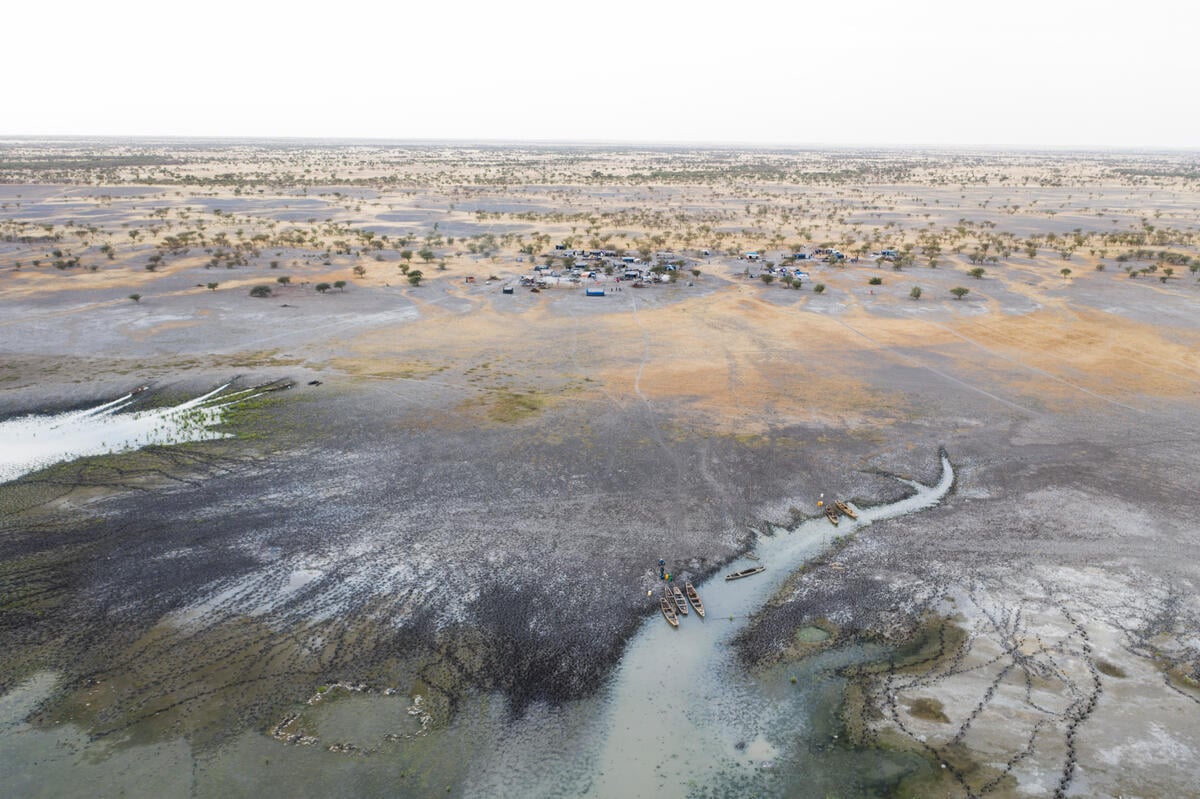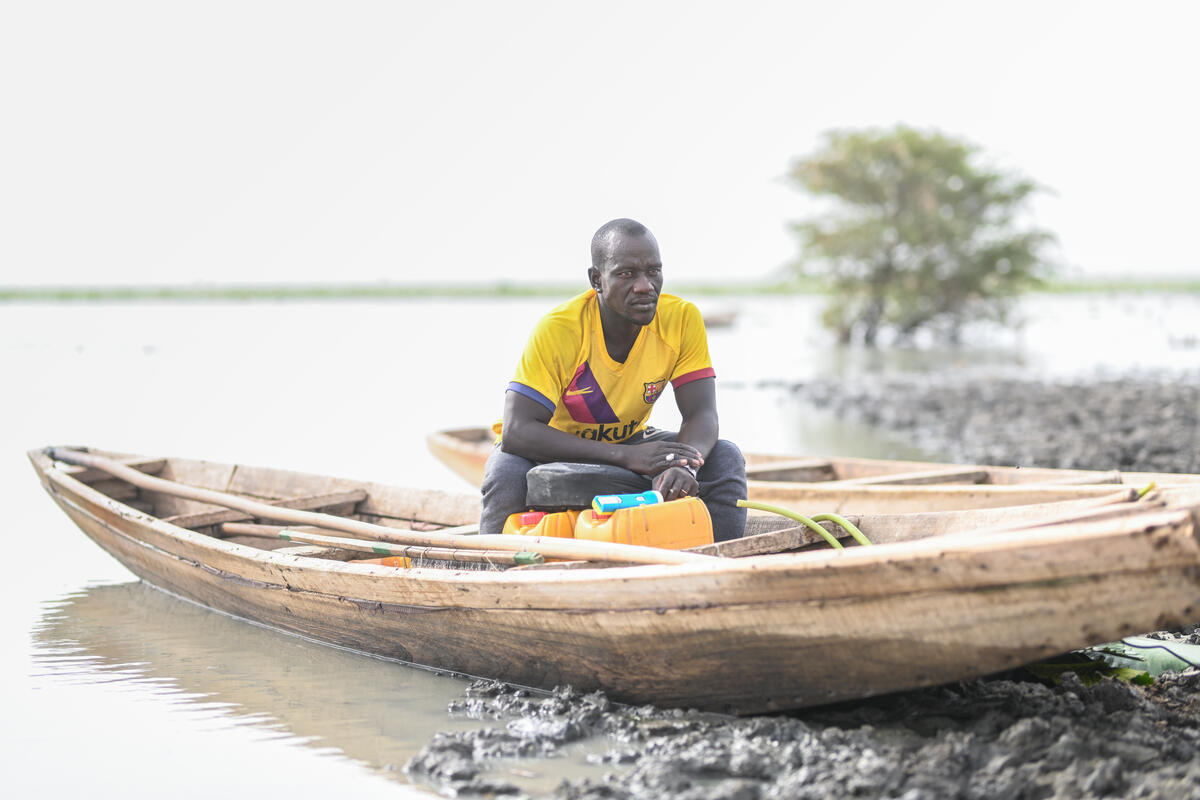World Environment Day: UNHCR promotes sound environmental management in operations
World Environment Day: UNHCR promotes sound environmental management in operations

GENEVA, June 5 (UNHCR) - The UN refugee agency marked World Environment Day with an exhibition in its Geneva headquarters of some of the eco-friendly programmes and policies it promotes in operations worldwide.
Photos and text focused on issues such as seedling production, tree planting, building materials, alternative energy sources, efficient techniques in food preparation, sustainable firewood collection and handling of dead animals.
"This is an opportunity to draw attention to the dependence of refugees and IDPs on natural resources for construction, heating, cooking, grazing pastures," Arnauld Akodjenou, head of UNHCR's Division of Operational Services, noted in a message to colleagues. He said UNHCR staff should start by promoting sound environmental management in their own workplaces.
"Caring for the environment is not an option but a priority for both humanitarian and development agencies. In this respect, UNHCR's primary concern stems from the need to protect the welfare of refugees and conflict-related internally displaced people," Akodjenou added.
This year's theme - "Melting Ice - a Hot Topic" - focuses on the threat posed by climate change. A report released by the UN Environment Programme (UNEP) to mark World Environment Day warns that the futures of hundreds of millions of people will be affected by declines in snow cover, sea ice, glaciers, permafrost and lake ice.
"The theme reminds refugees, internally displaced persons (IDPs) and UNHCR staff alike that they are responsible for ensuring a sustainable use of natural resources and protecting the environment to safeguard the livelihoods of refugees, IDPs and host communities. Climate change and growing competition for scarce resources are together likely to increase the incidence of humanitarian crises," Akodjenou said.
"The increase of desertified regions, the scarcity of water, the erosion of coasts, the decline of arable land, and the damage of infrastructure by extreme weather are all factors that could undermine security," he added.
There is no ice in water-scarce eastern Chad, where more than 230,000 refugees from neighbouring Sudan's Darfur region have found shelter, so the focus this year will be on raising awareness about the fragility of the environment and the steady advance of the Sahara due to natural and human activities.
"The presence of refugees in eastern Chad has increased pressure on natural resources, especially fuel wood, water and agricultural land," said Daniel Roger Tam, head of UNHCR's environmental unit in Abéché, the main town in the region. "This in turn has led to aggression and abuse of refugees, mainly women and children"
Many women have been attacked, and in some cases raped, when they have left refugee camps to collect firewood. This was another aspect highlighted in the World Environment Day exhibition in Geneva. UNHCR advocates firewood distribution to camps or settlements.
Tam said the price of firewood had at least tripled since 2004, when refugees began arriving in eastern Chad. In the past year alone, the price UNHCR pays for the firewood it distributes to refugees has more than doubled.
In Oure-Cassoni camp, the northernmost of 12 UNHCR-run refugee camps in eastern Chad and home to 26,000 Sudanese refugees, firewood is so scarce that humanitarian agencies give each refugee three litres of kerosene per month.
"We will soon arrive at a point where there is no more firewood available, and people will begin cutting down live trees," Tam said, adding: "This will exacerbate deforestation and hasten desertification." He also warns that competition for scare resources could lead to all-out conflict.
In a bid to halt, or slow, the Sahara's southwards march, UNHCR conducts environmental awareness campaigns in refugee camps. It has also developed solar, clay and metal cookers which use less fuel than normal cookers. Solar cookers are the most fuel efficient, but take longer to prepare food. The metal Save 80 eco cooker uses only 20 percent of the wood required by an open fire, while clay cookers save firewood by shielding the flames from the wind.
UNHCR environmental activities are designed to prevent and to mitigate the negative effects of refugee camps on the environment as well as, when necessary, to rehabilitate it in order to ensure the welfare of refugees and local populations.









